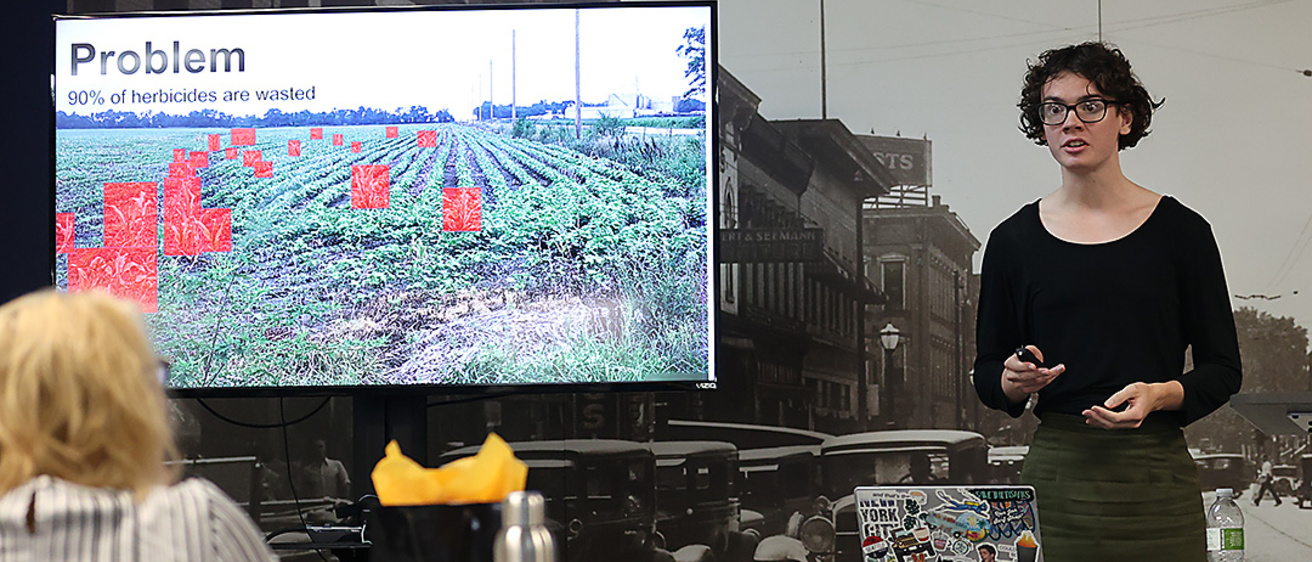By DARREN MILLER
Communications Specialist, Iowa JPEC
As the University of Iowa football team prepares for Saturday’s America Needs Farmers game against Penn State, a recent graduate is putting the finishing touches on a game plan to reduce herbicide costs for farmers by nearly 90%.
Holly Bennett is a native of Ankeny, Iowa, and her only previous connection to the agriculture community is that her grandparents owned a farm near where she grew up. Because of Bennett’s ingenuity and entrepreneurial spirit, farmers around the world—especially those harvesting wheat—will receive quite a reprieve when it comes to the cost of eliminating weeds. Using the same technology that allows self-driving cars to detect stop signs, Bennett created Sprayer Mods, a device that attaches to an agricultural sprayer and applies expensive herbicide only to weeds.
“Companies were doing this sort of thing before, but my focus was to let machine learning do this,” said Bennett, who graduated in May 2021 with degrees in computer science and mathematics. “I saw what people were doing and I knew from my previous experience that there was another tool that could work much better.”
Bennett has an impressive resume for a recent college graduate. That includes an internship with the NASA Goddard Space Flight Center where she worked on flight code for the EXCLAIM mission. She has been on a “pitch” winning streak with Sprayer Mods: on July 29 she joined Blake Espeland at the virtual University Pitch Madness event, where she earned $1,500 by placing runner-up out of nine universities. The next day Sprayer Mods took first and bought home $3,500 at Hawkeye Startup Accelerator Final Pitches in Iowa City.
The way Sprayer Mods detects weeds is what sets it apart from other pieces of equipment. Cameras mounted on a sprayer take pictures of the ground before feeding images to a computer. Then, a valve opens to apply herbicide only if that computer detects a weed, like kochia, pigweed, and wild oats. Not only will herbicide waste be reduced, but the Sprayer Mods system could pay for itself in weeks, if not days. One wheat farmer Bennett interviewed shells out $26,000 every time he fills the tank of herbicide. For wheat farmers, herbicides are the second-largest input costs, costing between $9 and $30 per acre.
Bennett’s goal is to partner with a company that would build her attachment into its sprayers. That would lead to the most widespread distribution, and another byproduct would be the environmental advantage of less herbicide buildup and runoff.
In testing, Bennett said Sprayer Mods has a 95% accuracy rate. That is music to the ears of wheat farmers everywhere, especially in Kansas, Colorado, North Dakota, South Dakota, Montana, Washington, and Oregon. Other target market are Canadian provinces of Alberta and British Columbia.
Completing Bennett’s group are Espeland from the Iowa robotics team, who made the system of detecting weeds work, and Benjamin Lange, a student in computer engineering.
